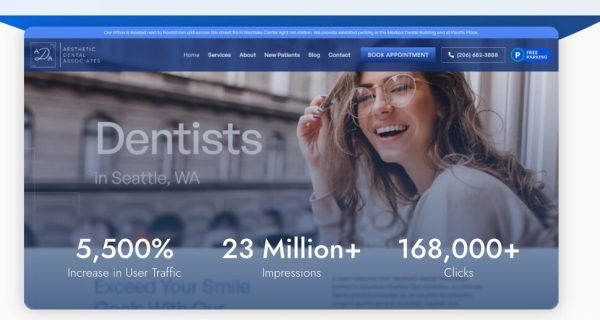Are You Capitalizing on Topical Authority?
Establishing topical authority for your website can be the difference between being a trusted industry leader and getting lost in the sea of countless competitors. Topical authority isn’t just about creating content—it’s about positioning your website as a comprehensive and reliable resource in your niche by showcasing your expertise. However, many businesses make mistakes that derail their efforts, costing them time, resources, and opportunities.
Are you ready to lean into topical authority? Our digital marketing company has helped many clients succeed with topical authority. To learn more and schedule a free consultation, contact Now Media Group today at (858) 333-8950.

What Is Topical Authority?
Before diving into mistakes, let’s clarify what topical authority means. Topical authority refers to the perception search engines and users have of your website as an authoritative source on a specific subject. Achieving topical authority requires:
- Deeply covering topics relevant to your niche, leaving no stone unturned.
- Consistently producing high-quality, valuable content that matters.
- Building a strong interconnection between related content on your site.
Search engines, particularly Google, reward websites with high topical authority by ranking them higher in search results. However, missteps in your strategy can hinder your progress.
Don’t Make These Mistakes
Neglecting Comprehensive Keyword Research
Keyword research lays the foundation for building topical authority. Without a clear understanding of what your audience is searching for, you risk creating content that lacks relevance or fails to target high-value queries. You will also likely miss subtopics that need to be addressed.
Our tips include:
- Find your primary keywords first.
- Don’t forget to target long-tail keywords.
- Use related search queries.
- Organize keywords into clusters to structure your content strategy.
- Focus on search intent (informational, navigational, transactional) to align your content with users’ needs.
Failing to Create Content Clusters
Publishing scattered, unconnected content confuses search engines and prevents them from recognizing your expertise in a particular area. Content clusters help establish topical authority by structuring your site logically.
To combat unorganized content, do the following:
- Map out every page by using a topical map.
- Create a pillar page that provides an overview of a broad topic.
- Develop supporting blog posts that delve deeper into subtopics, linking back to the pillar page.
- Use a clear internal linking strategy to connect related posts and reinforce your content’s hierarchy.
Publishing Low-Quality or Thin Content
Search engines prioritize high-quality content that adds real value. Thin or low-quality content, even if it targets the right keywords, won’t perform well and can hurt your credibility.
Make sure to:
- Prioritize depth and originality in every piece you publish.
- Include actionable insights, real-world examples, and data-driven analysis.
- Regularly audit your existing content to identify and improve underperforming pages.
Overlooking the Power of Internal Links
Internal links play a crucial role in helping search engines understand the relationship between your content. Without them, your content becomes isolated and less effective in building topical authority.
Your internal linking strategy should prioritize:
- Using descriptive anchor text to link related articles naturally, with a focus on anchor text being high-value search terms.
- Ensuring that every new piece of content links to relevant existing pages.
- Creating a site map to help search engines and users navigate your content easily.
Ignoring User Experience (UX)
A poorly designed website can drive users away, no matter how authoritative your content is. Search engines consider user engagement metrics, such as bounce rates and time on page, when ranking content.
Our tips for a seamless user experience include:
- Optimize for mobile responsiveness and fast loading times.
- Use clear headings, bullet points, and visuals to make content more readable.
- Incorporate interactive elements like videos, infographics, or quizzes to enhance engagement.
If you need a new website design, contact our digital marketing team today at (858) 333-8950.
Not Addressing E-E-A-T (Expertise, Experience, Authoritativeness, Trustworthiness)
Google’s E-E-A-T guidelines emphasize the importance of high-quality content from credible sources. Failing to demonstrate expertise or trustworthiness can hurt your rankings.
Do this to achieve E-E-A-T:
- Highlight author credentials and experience.
- Include links to reputable sources in your content.
- Build backlinks from authoritative websites to boost your credibility.
Focusing Too Much on Volume Over Value
Publishing a large volume of mediocre content doesn’t establish authority. Instead, it can overwhelm your audience and dilute your site’s focus. While you may need a large amount of content to establish your authority, do not neglect its quality.
Our tips:
- Adopt a quality-over-quantity mindset.
- Create a content calendar to ensure consistency while maintaining high standards.
- Regularly update older content to keep it relevant and valuable.
Ignoring Competitor Analysis
If you’re unaware of your competitors’ strategies, you might miss opportunities to cover important topics or differentiate yourself.
Do this:
- Analyze competitor websites to identify gaps in their content and areas where you can excel.
- Use tools like BuzzSumo or SimilarWeb to monitor their top-performing content.
- Offer unique perspectives or deeper insights to stand out.
Ready to Build Your Topical Authority?
If you’re looking for expert guidance, our team at Now Media Group specializes in crafting content strategies that drive results. Contact us today at (858) 333-8950 to learn how we can help you dominate your niche and achieve sustainable growth.

